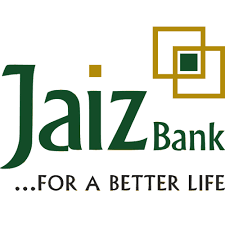By Dele Ojo
Jaiz Bank Plc has appointed a new Executive Director to further strengthen its top level management for enhanced service delivery as the country’s financial sector confronts challenging operating environment. The new Executive Director is in the person of Ahmed Alhaji Hassan, and Chief Financial Officer of the bank. The appointment has been duly approved by the Central Bank of Nigeria (CBN).
The bank is the first licenced Non-interest financial institution in Nigeria with national authorisation, that is, it has the authority to operate in all the states of the Federation and at the federal capital territory.
Notifying the Nigerian Stock Exchange and the investing public, the bank explained that Ahmed Alhaji Hassan has over 26 years cognate experience which started from his career as a lecturer of Accounting and Finance at Bayero University, Kano before joining the Banking and Finance industry.
Revealing further his wealth of experience, Ahmed worked with the Securities & Exchange Commission (SEC), former New Africa Merchant Bank Ltd., NAL Merchant Bank (now Sterling Bank), NUB/FINBANK (now FCMB) and had a brief stint with Dangote Group as the Financial Controller of Kano Flour Mills. His banking experience covers Corporate Finance, Banking Operations, Risk Management, Financial Controls and Branch/Regional Banking.
Ahmed Alhaji Hassan is a Fellow of the Institute of Chartered Accountants of Nigeria, a Fellow of the Chartered Institute of Taxation of Nigeria and an Associate of the Pension Institute of Nigeria, as well as an Alumnus of Bayero University, Kano and the University of Lagos. He is a fellow of the Compliance Institute, Nigeria (FCIN) and a Certified Anti-Money Laundering Specialist(CAMS).
The Bank started with a Regional License obtained from the Central Bank of Nigeria to operate in the Northern part of the country and thereafter metamorphosed into a National Bank on the 12th of May 2016 with key presence in virtually all geopolitical zones of the country.
The Bank’s core values are built on 7 principles with the acronym RESPECT; Responsibility, Entrepreneurship, Simplicity, Partnership, Excellence, Customer Focus and Trust. These core values drive the Bank towards achieving its vision to be the clear leader in ethical Banking in Sub-Saharan Africa.
Jaiz Bank is publicly quoted on the Nigerian Stock Exchange (NSE) with a balance sheet size of N233 billion (as at December 31st 2020) from N12 billion in 2012. Financing and Investment assets also grew from over N30 billion in 2012 to N166billion (as at December 31st 2020). Other critical parameters such as customer deposits, branch network and profitability have all been growing year–on–year since inception.
Non-Interest Banking is a growing global phenomenon practised in nearly 80 countries across the world including the United Kingdom, Canada, the United States of America, the United Arab Emirates, Malaysia, China, Singapore, South Africa, Kenya etc. Global Banks like HSBC, Citibank, Barclays Bank, Standard Chartered etc. are also offering non-interest banking products and services.
It is an alternative financial service offering that is open to all, irrespective of race or religion. It is based on the ethical principles of fairness, transparency and objectivity. Non-Interest Banking offers almost all the services of conventional banks.
The difference is that Islamic Banks do not give or receive interest, nor finance anything that is harmful to the society like alcohol, tobacco, gambling etc. They also avoid gharar- speculation, extreme uncertainty and deception. A significant portion of Nigerian population is desirous of ethical banking services which Non-Interest Banking is poised to deliver.
In summary, Non-Interest Banking is real-economy oriented where profit and loss sharing arrangement, mark-up, leasing and partnership are mostly the mode of financing .






Comment
No comments found.